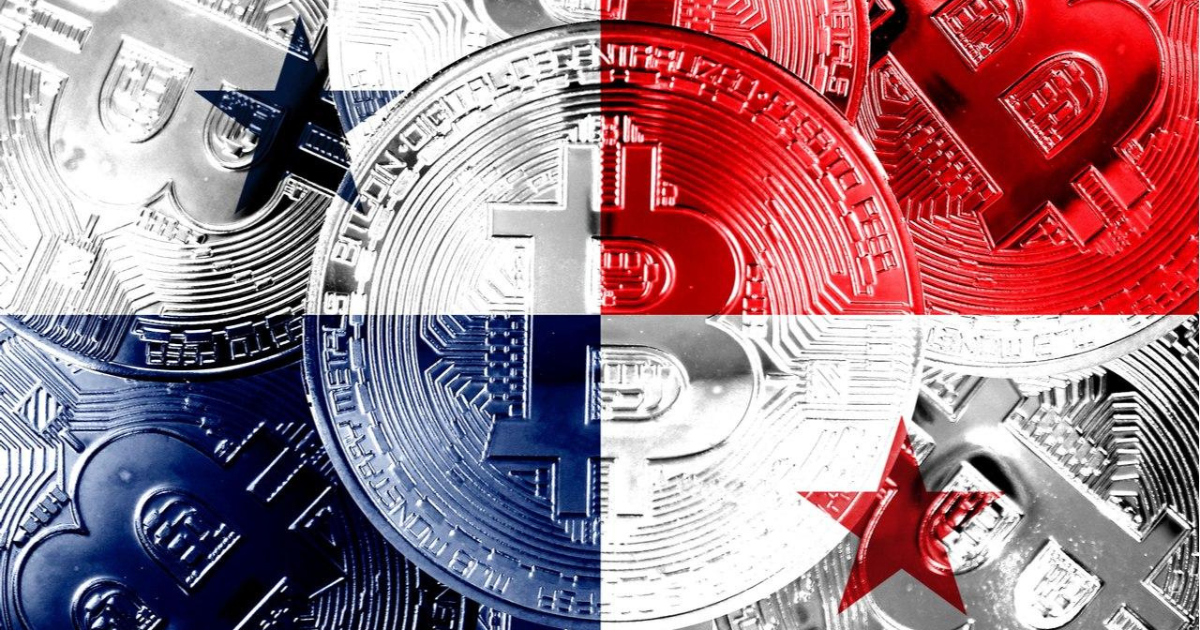A draft bill in the National Assembly announced the formal proposals of the Panama new crypto payment regulations. This move positions the country as a regional blockchain hub.
The legislation aims to recognize digital assets as legal for transaction while establishing clear regulatory boundaries. If passed, the bill could solidify Panama’s stance on cryptocurrency regulation.
Key-Takeaways:
- A new bill seeks to establish Panama as a global blockchain hub by legalizing digital assets and implementing stricter regulations.
- Contracts can be formed using Bitcoin and Ethereum if both parties agree, but unlike El Salvador, it will not become mandatory.
- The bill promotes blockchain integration in public services and offers tax incentives to attract cryptocurrency companies.
Legal Framework and Recognition
 The Panama New Crypto Payment bill grants legal recognition to the digital assets such as Bitcoin and Ethereum. When both parties agree, these cryptocurrencies can be used in commercial and civil contracts.
The Panama New Crypto Payment bill grants legal recognition to the digital assets such as Bitcoin and Ethereum. When both parties agree, these cryptocurrencies can be used in commercial and civil contracts.
🚨 BREAKING: Panama introduces a draft bill to regulate cryptocurrencies, recognizing digital assets as a legal means of payment.#Cryptocurrency #Panama #DigitalAssets pic.twitter.com/bi22YzrlSn
— CoinRank (@CoinRank_io) March 29, 2025
This marks a significant shift away from the legal uncertainty that previously exposed users to risk. According to the Superintendence of Banking in Panama, this regulatory clarity is important.
Unlike El Salvador’s way, where cryptocurrency is mandatory legal tender, its use in Panama would be optional. Digital assets can be made as a business and personal choice and not as a mandatory legal tender.
From the Substitute Representative, Gabriel Solis’ statement, he said, “We’re not talking about the future we’re talking about the present.” This law is meant to establish a regulatory basis for these technologies to develop into.
Panama New Crypto Payment Regulation intends to provide a legal certainty and transparency to every resident from inside or outside the country. This makes sure that the digital assets of users are secure and do not carry additional risks that are not required.
Regulatory Requirements for Service Providers
 With Panama New Crypto Payment legislation, VASPs are required in the national database. Once the framework has been approved, companies such as Binance, PayPal and Coinbase which currently restrict direct services for the Panamanian population because of regulatory uncertainty, could open local branches.
With Panama New Crypto Payment legislation, VASPs are required in the national database. Once the framework has been approved, companies such as Binance, PayPal and Coinbase which currently restrict direct services for the Panamanian population because of regulatory uncertainty, could open local branches.
To comply with the Panama New Crypto Payment bill, crypto companies must follow know your customer (KYC) and anti-money laundering (AML) policies. To enable enforcement of terrorism financing, money laundering, and financing of weapons of mass destruction, VASPs must put in place the requisite safeguards.
Specifically, this legislation establishes licensing requirements and minimum capital standards with which service providers have to comply for it to operate legally within Panama’s jurisdiction. These measures are meant to ensure transparency and accountability in the digital asset industry.
There could be administrative or criminal penalties for noncompliance with it, and in case of strict security standards and legitimacy within the Panama New Crypto Payment ecosystem.
Blockchain Integration in Government Services
 The draft bill calls for blockchain technology to be at the heart of Panama’s digital agenda. The Panama New Crypto Payment framework intends to include blockchain to carry out various government functions in a more effective and more transparent manner.
The draft bill calls for blockchain technology to be at the heart of Panama’s digital agenda. The Panama New Crypto Payment framework intends to include blockchain to carry out various government functions in a more effective and more transparent manner.
The applications that have been proposed are based on property registry operations, public document verification and tax payments. Furthermore, blockchain may help documents issued by an authority become digitalised and facilitate digital identity projects.
The blockchain implementations on these latter platforms are aimed to eliminate bureaucratic inefficiency and transparency in government operations. Panama New Crypto Payment technologies, used in the country, are being leveraged to bring citizens the expected public services that should be more accessible and secure.
The integration of this technology would be a forward-looking system to update Panama’s administrative infrastructure. This reiterates that the nation is putting as much of an emphasis on digital innovation and regulatory clarity as it is on the evolving crypto scene.
The Panama New Crypto Payment legislation urges taxes on businesses in the cryptocurrency sector in order to attract digital asset companies and grow the industry. This places Panama as a competitive hub for blockchain innovation.
The title of the bill puts particular emphasis on ‘’establishment of a regulatory framework for the use of cryptocurrency and blockchain and promotion of a digital economy for Panama.’’
Panama’s vision of morphing into a regional blockchain hub holds up President Jose Raul Mulino as its champion, suggesting that Panama Blockchain Week could very much serve as the critical period to realize this ambition.
For Panama Blockchain Week, Marta Ambor said that with this status, it will also require global collaboration and active participation from industry.
However, the Panama New Crypto Payment bill works as a solution to the issues with the 2022 proposal that was found to be unconstitutional in 2023. If Panama is approved along with El Salvador and Brazil, Panama will become one of the leading Latin American countries enacting digital asset regulations.
Conclusion
The Panama New Crypto Payment legislation harmonizes a public blockchain with a private adoption. The framework can help Panama gain a better standing as a nation in the global digital economy and advance financial innovation. What do you think Panama’s crypto regulation will do to the country’s economy and status internationally?










